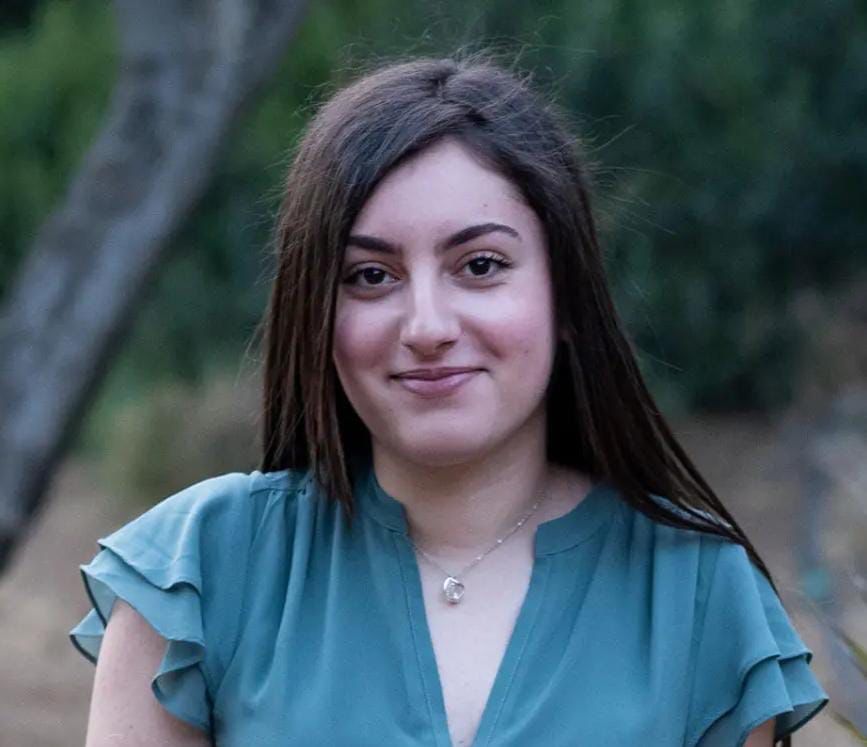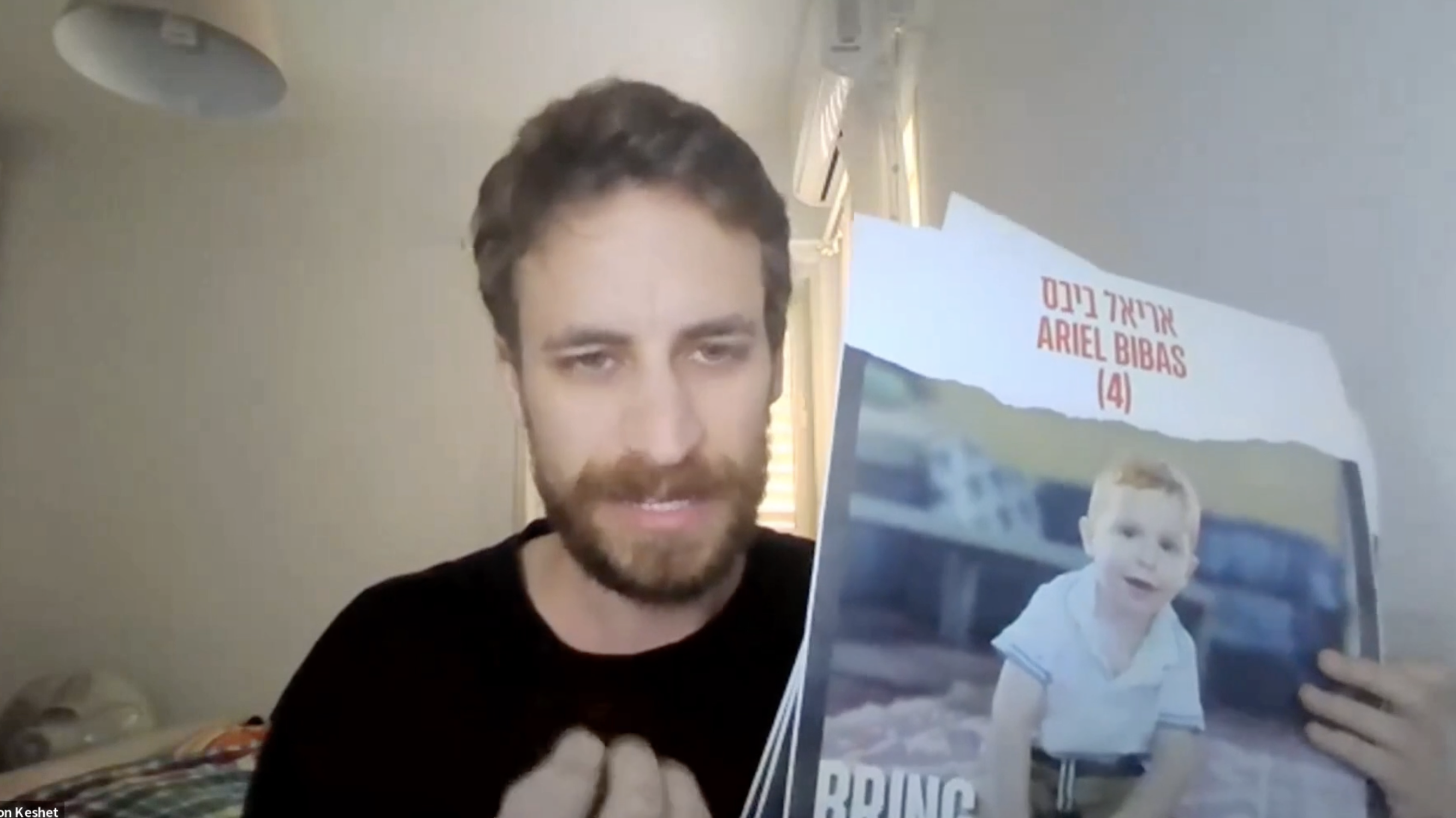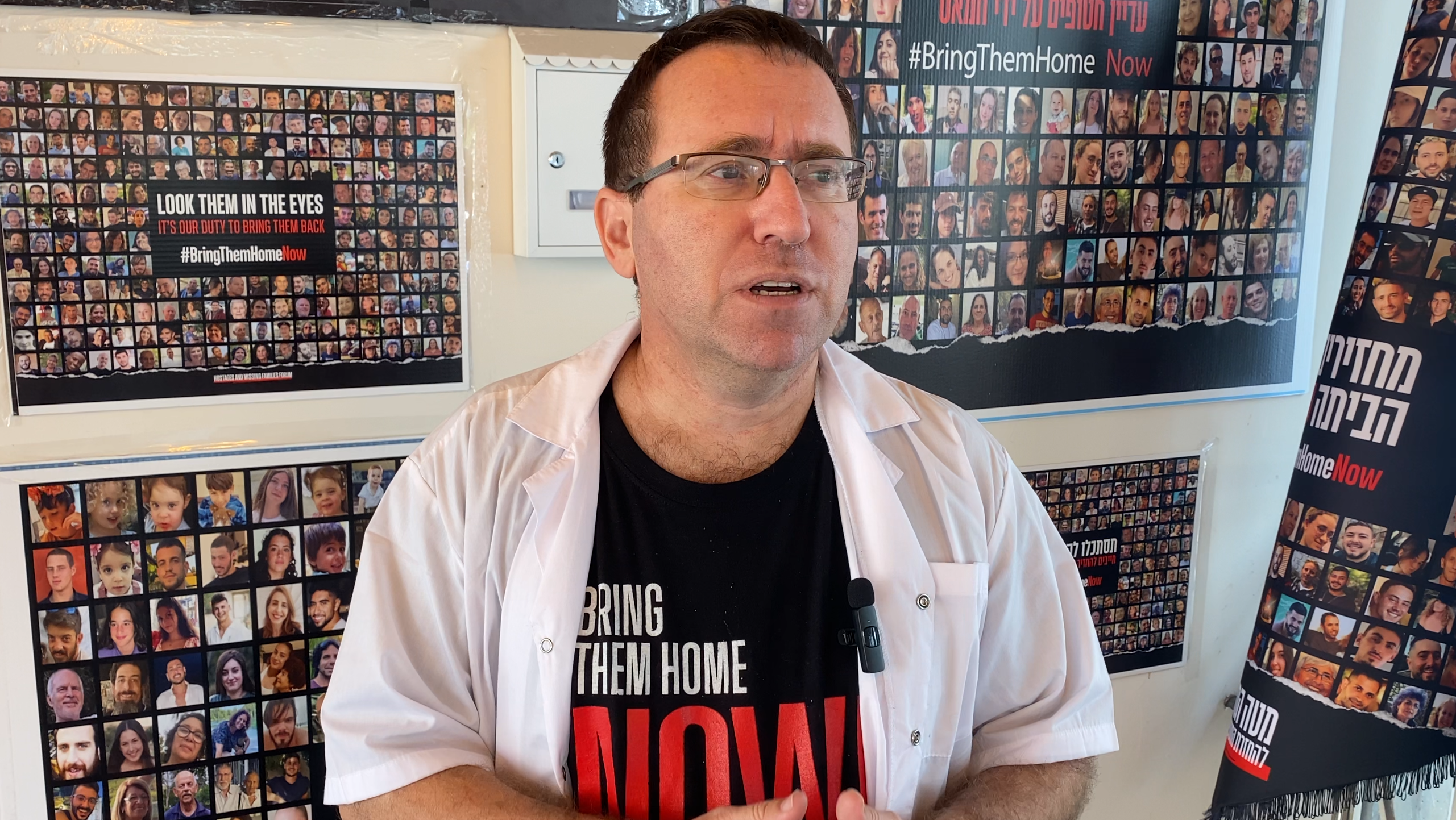Red Cross and UNICEF Inaction Is ‘Perpetuating Torture and Murder,’ Say Hostages’ Families
Following international Human Rights Day on Dec. 10, the Hostages and Missing Families Forum in Israel has released an open letter calling on international organizations – specifically the International Committee of the Red Cross and UNICEF, the United Nations Children’s Fund – to do more on behalf of the hostages still in Hamas captivity in the Gaza Strip.
Official figures state that 137 people are still being held in Gaza, although the deaths of several of them have been confirmed. Among the hostages are many who were injured during the Hamas attack on Oct. 7, as well as elderly people with chronic health conditions that require medications and monitoring. Their conditions are unknown and the forum says that not nearly enough pressure is being applied.
In a live online press event, Prof. Hagai Levine, head of the forum’s medical team, and two relatives of Israeli hostages drew attention to the plights of the hostages and the world’s weak response.
“We don’t think the Red Cross is some magician that can do everything,” Levine said. “Obviously [access to the hostages] is also dependent on Hamas, and we appreciate the Red Cross’ help in bringing released hostages home [during the temporary cease-fire].”
The forum points to testimony collected from released hostages, who described Hamas as inflicting “extremely abusive conditions” on the captives, including physical and sexual violence, psychological torture, and varying degrees of starvation.
Levine said he estimates that “more than half of the hostages are in need of urgent medical care” and said that “several of the released hostages are still in severe condition, needing urgent, intensive care just to survive.”
A total of 105 hostages were released during the week-long cease-fire at the end of November, including 81 Israelis – almost all of them women and children – as well as 24 foreign nationals, mostly Thai agricultural workers. Before the cease-fire, four hostages were released and a fifth was rescued by Israeli troops.
Levine said the open letter “focuses on the health implications, the high risk of irreversible physical and psychological damage, and ultimately death risk for the remaining hostages and the grave violation of their basic human rights by those who kidnapped them, the Hamas terrorist organization. We cannot emphasize strongly enough the urgency for international intervention to facilitate their immediate safe return.”
Another speaker on the press panel was Sasha Ariev, whose younger sister Karina, age 19, was kidnapped from Nahal Oz. A video showed Karina, a psychology student, being taken injured but alive from her bedroom, wearing only pajamas. Nothing is known of her condition, and Sasha Ariev has been hoping for the best while fearing the worst. Hamas’ own videos, as well as released hostages and survivors, have testified to widespread sexual abuse and genital mutilation by the terrorists.

Karina Ariev. (Courtesy Ariev family)
The remaining speaker was Eylon Keshet, cousin of Yarden Bibas, 34, who was abducted from Kibbutz Nir Oz. Yarden’s wife Shiri, 32, and their young sons, Ariel, 4, and Kfir, now 11 months, were also kidnapped separately, in a widely seen video. Baby Kfir was the youngest hostage taken by Hamas, and he and his mother and brother were not released with the other women and children. Their conditions are unknown.

Eylon Keshet holds a poster showing his nephew Ariel Bibas at the press event. (Screenshot)
Keshet said that Ariel has a chronic condition that causes him to bleed without the right medication. It is assumed that he has not received such treatment in captivity.
Give the gift of hope
We practice what we preach:
accurate, fearless journalism. But we can't do it alone.
- On the ground in Gaza, Syria, Israel, Egypt, Pakistan, and more
- Our program trained more than 100 journalists
- Calling out fake news and reporting real facts
- On the ground in Gaza, Syria, Israel, Egypt, Pakistan, and more
- Our program trained more than 100 journalists
- Calling out fake news and reporting real facts
Join us.
Support The Media Line. Save democracy.


Hamas’ footage showed Yarden bleeding from the head after being hit with a hammer as he was taken into Gaza on a motorbike. He is believed to be alive, albeit under severe psychological and physical abuse.
In a hostage video aired by Hamas in late November, Yarden is seen after being told by Hamas that his family had been killed in an Israeli air strike.
“[Hamas] kept him in unimaginable conditions and then told him, ‘Your wife and your children are dead.’ And whether it’s true or not, this is what he has to live with every day now,” Keshet said.
It has been assumed that everything Yarden says in the video is scripted and there has been no evidence corroborating the deaths of his family.
Hamas has lied about hostage deaths in the past as a form of psychological warfare, such as in the case of Hanna Katzir, 77, whom Hamas said had been killed. However, she was released on Nov. 24, in the first release during the cease-fire. Her husband Rami, 79, was murdered by Hamas on Oct. 7, and their son Elad was kidnapped separately from his home in Nir Oz and remains a hostage in Gaza.
I do blame the organizations that say they’re doing something. I have not seen any results of their actions.
The forum again condemned international organizations’ failure to gain humanitarian access to the hostages or obtain minimal information about their wellbeing, as well as their failure to be in contact with the hostages’ families.
“I do blame the organizations that say they’re doing something,” Ariev said. “I have not seen any results of their actions.”
Holding photos of the Bibas family, Keshet said he wanted people to understand “the shameful behavior of the international supposedly humanitarian community. One of the first things I and my family members did was reach out to the Red Cross. I have yet to receive a reply. Only their automated message.”
They only have one job, which is to take care of people and children who need help, but they’re not doing this, they’re not replying, and they’re not taking any responsibility. So they are perpetuating torture and murder.
Ariev also reached out to the Red Cross and managed to get a meeting, but said, “For the majority of the meeting they just justified themselves as an organization that is doing everything they can,” without anything to show for it.
Speaking specifically of the Red Cross and UNICEF, Keshet said, “They only have one job, which is to take care of people and children who need help, but they’re not doing this, they’re not replying, and they’re not taking any responsibility. So they are perpetuating torture and murder.”
Levine said it was another point of contention that Red Cross President Mirjana Spoljaric Egger was only coming to Israel this week, despite this being where “over 100,000 people are still uprooted from their homes and where genocide was committed in certain kibbutzim, like Be’eri and Nir Oz.”
Spoljaric Egger is slated to come from Geneva to Israel on Thursday, Dec. 14, for the first time since the beginning of the war. She traveled to Gaza on Dec. 4.
Keshet demanded that the hostages’ humanity be kept first and foremost in the minds and discussions of the media and the public.
“They’re not just a photo, these are real human beings,” he said.
“This is our message to the world: Spread our stories and don’t try to just justify yourselves with humane words, but do something,” Ariev added.
“We need to release each and every one of them because they’re already injured physically and psychologically so much that even after they come [home] as safely and soundly as possible, they will have a lifetime of trying to be well again.”

